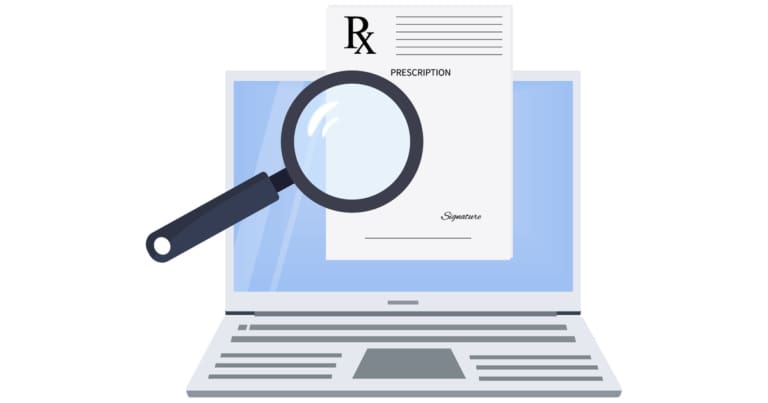The Office of the National Coordinator for Health Information Technology (ONC) released a proposed rule that would clarify and revise the information blocking prohibition and establish new standards and updates to enhance interoperability. This article focuses on the proposed provisions governing real-time prescription benefit tools, information blocking, and application programming interface (API).
Real-time prescribing and electronic prior authorization
Real-time prescription benefit tools enable practitioners and their patients to compare the patient-specific cost of a drug to the cost of a suitable alternative; compare prescription costs at different pharmacies; view information about out-of-pocket costs; and learn whether prior authorization for a specific drug is required.
The proposed rule would establish new and updated criteria for real-time prescription benefit tools to ensure real-time prescription benefit capabilities are implemented effectively for practitioners such as allergists. The rule further proposes changing electronic health record (EHR) developers’ certification requirements by requiring that EHR developers make prior authorization (PA) tools available for physicians to use. This will enable PA through EHR and allow secure entry and transmission of prescription information via electronic devices (i.e., computers or tablets).
If finalized as proposed, all EHR updates and new products must include PA electronic prescribing functionalities, and EHR developers must make electronic PA tools available for physician use. These measures will provide physicians and patients with more information during prescribing, ensure consistency across systems, and promote timely patient care. Further, they will lower the administrative burden of PA’s, which the Advocacy Council continues to support.
Information blocking
Current law prohibits physicians from engaging in information blocking by knowingly supporting a practice that is unreasonable and likely to prevent, materially discourage, or otherwise inhibit access, exchange, or use of electronic health information (EHI). The proposed rule seeks to clarify this law by providing several examples of potential violations:
- Delaying patient access to new EHI, such as diagnostic testing results, so clinicians or other actor representatives can review the EHI.
- Delaying patient access to EHI in a portal or patient-approved third-party app when the practice has the EHI, and the practice’s system has the technical capability to support automated access, exchange, or use of the EHI via the portal or app.
- Implementing health IT in ways that are likely to restrict access, exchange, or use of EHI with respect to exporting EHI, including, but not limited to, exports for transitioning between health IT systems.
Currently, a physician is not considered to have committed information blocking if the practice meets one of eight exceptions. Please refer to our recent article on information blocking to learn more about these exceptions. The proposed rule seeks to revise, in relevant part, an existing exception:
- Privacy Exception: Under the current privacy exception, an allergist does not commit information blocking when they do not fulfill a request to access EHI to protect an individual’s privacy. The proposal expands the privacy exception to all actors regardless of whether they are required to comply with the HIPAA right of access provision or whether the individual invoked the HIPAA right of access provision. The proposed rule further revises the privacy sub-exception related to respecting an individual’s request for an actor not to share their information. The proposed rule clarifies that compliance with any individual’s request to withhold information under this sub-exception’s requirements would not be considered information blocking by an actor, regardless of whether other valid law compels the actor to disclose EHI against the individual’s expressed wishes.
Provider application programming interface (API)
To help providers complete the required actions under the finalized measures for electronic PA measures (as applicable to eligible clinicians who participate in the Promoting Interoperability performance category of MIPS), the proposed rule updates certification criteria that would facilitate electronic PA using certified health IT to ensure that health care providers are able to interact with these APIs using certified health IT.
The Advocacy Council – ADVOCATING FOR ALLERGISTS AND THEIR PATIENTS.



